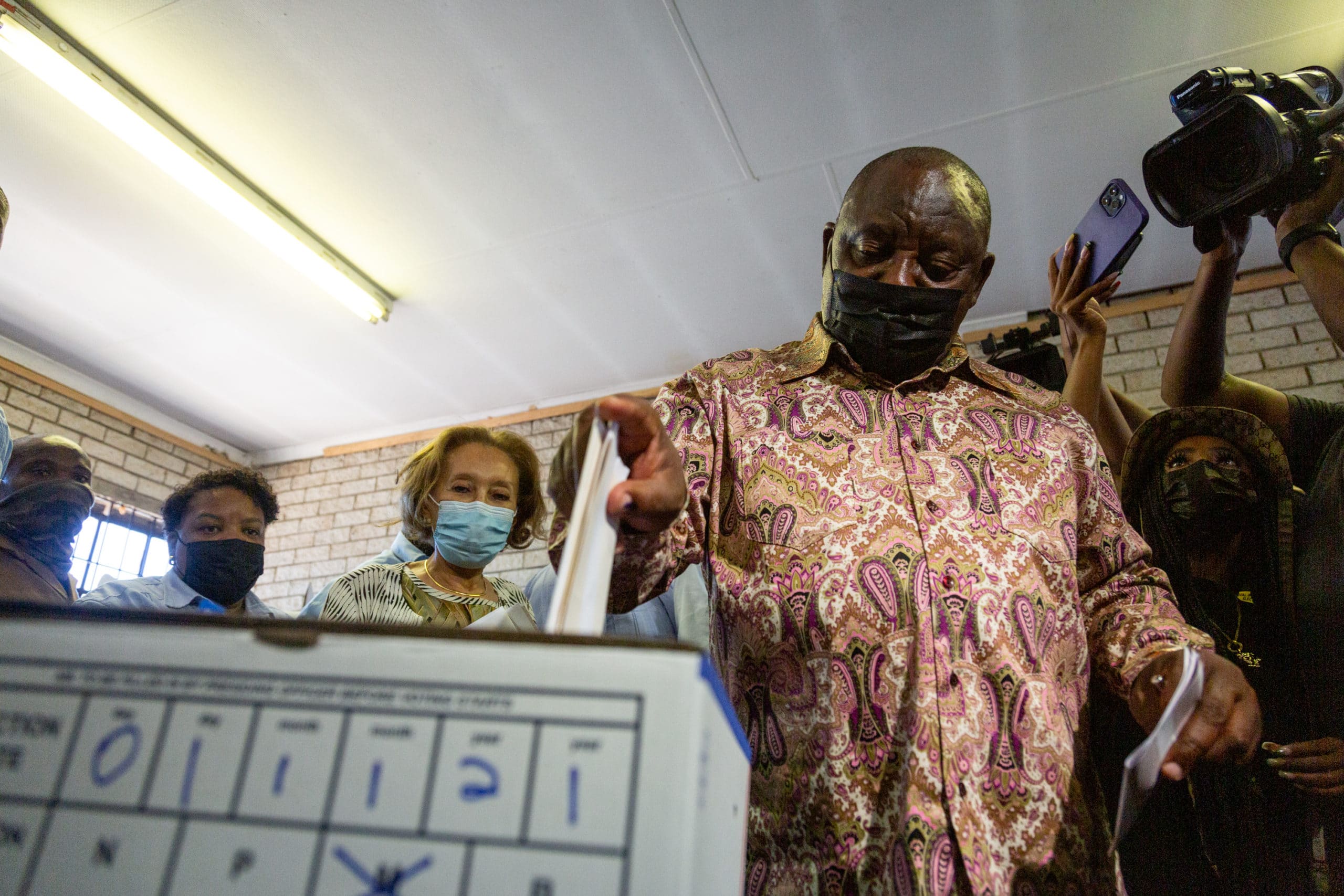Despite hotly-contested campaigning across many municipalities, less than half of the registered voters turned up to cast their ballots at the 2021 South African local elections. The poor delivery of essential services was cited by many as a reason.
On November 1, South Africans gathered at polling stations set up in schools, churches and municipal buildings across the country to cast their votes in the 2021 local government elections, which determine the councils for all district, metropolitan and local municipalities in the country.
In Hitekani Primary School in Chiawelo, Soweto, South Africa’s oldest township and where South African President Cyril Ramaphosa of the ruling African National Congress later arrived to cast his ballot, primarily elderly voters stood in line in the bristling sun even as the suburb suffered power cuts – one of the key concerns highlighted by protestors in the area earlier in the day, perhaps because they were aware of where the President would cast his vote.
A Reuters report says that “early results from South Africa’s local elections on Tuesday gave the ruling African National Congress (ANC) 46% of the vote, with results in from just over a quarter of polling stations nationwide”.
As results begin to trickle in – the final announcement is on November 4 – the Independent Electoral Commission (IEC) said that voter turnout stood at 8 million (the total number of registered voters is 26.2 million).
This is reportedly the lowest voter turnout since South Africa became a democracy.
“Service delivery! Service delivery!” chanted members in ActionSA t-shirts outside of the school, as Ramaphosa arrived to cast his own ballot amidst a massive security presence. As snipers watched from nearby rooftops, many in the crowd booed – as the president alighted from his vehicle – highlighting their dissatisfaction about being without running water or reliable electricity in the country, and the failure of their municipalities to deliver these services.
While attempting to keep an optimistic outlook, Ramaphosa seemed to acknowledge the need to address these concerns, in particular, since many of the most poorly-run municipalities have fallen under the governance of the ANC.
“The least we can do is to go and explain to our people, and tell them why we are not able to do it [resolve issues]… I would like whoever wins to actually make sure that municipal service delivery is done differently from what we have done before,” said Ramaphosa at a press conference shortly after casting his ballot.
At the three polling stations that FORBES AFRICA visited, the voters were predominantly young – and anecdotal numbers indeed seemed to reflect the low voter turnout reported by the IEC.
“We want all these problems that we have to get better,” said one of the young registered voters to FORBES AFRICA, who did not want to be named. “I vote because I want things to be different.” When asked if many of their friends or peers had voted, they answered that none had.
While some voting stations were closed due to protest action and with reports of ballot shortages in some areas, these were few and far between and don’t account for the low turnout.
The IEC refused to speculate on the reasons for the apparently low numbers. “We would like at this stage to remain as scientific as possible,” said IEC Chairperson Glen Mashinini during a media briefing the night of the elections. “We still have to see and hear what observers have to say. It might be early stages for the Commission to make opinions and analysis… So it’s not that we’re not noting whether this raises matters of confidence or no confidence.”
Today, on November 2, state power utility Eskom announced unexpectedly the possibility of further electricity cuts, and the residents of Chiawelo remain without power.
“We know what the problems are,” said Ramaphosa. “The problems are clear. And we have said that this time round we want to correct what has not been going well.”
